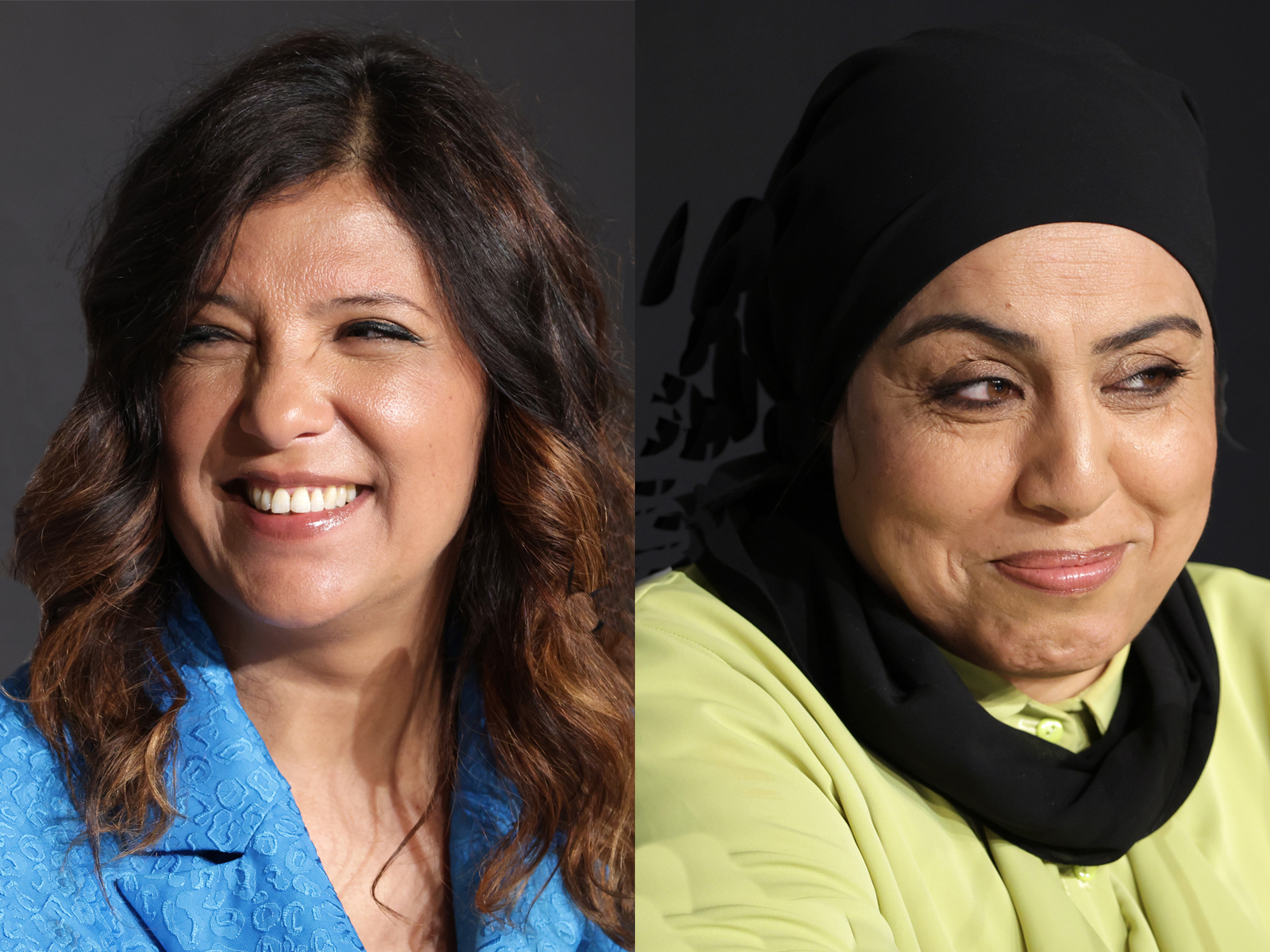
- Festivals
“Four Daughters” by Kaouther Ben Hania – Perfect Crossover Between Fiction and Documentary
Former Oscar nominee (The Man Who Sold His Skin) and Tunisian director Kaouther Ben Hania was one of the winners of the L’Oeil d’Or award for best documentary during the 76th edition of the Cannes Film Festival. Her movie Four Daughters, that was also in competition for the Palme d’Or, made significant waves during the festival. Its seamless mix of fiction and reality in portraying the story of Olfa Hamrouni and her daughters led to a panel set to reflect on this cinematic trend. Ben Hania was invited to talk about this subject matter in front of a live audience at the Palais des Festivals.
“It was 2016 when I heard Olfa speak for the first time in a radio show. She was very charismatic and full of contradictions. We love that in cinema, flawed characters. I decided to contact her through the journalist who had done that interview. We talked and decided to go forward with the project.”
In this movie, Ben Hania shows what led Olfa’s two eldest daughters to become radicalized and leave Tunisia to fight with ISIS. In the documentary, two actresses have been cast to portray the missing daughters, the two youngest daughters play themselves and Olfa shares her role with famous Arabic actress Hend Sabri, when the scenes become too hard to be re-lived. It is with that crossover between real characters and actors that this movie comes to life while at the same time opening new stylistic avenues in cinema.
The re-enactment of this family’s devastating experience of loss was set in the context of the Jasmine Revolution that overthrew Tunisian President Ben Ali in 2011. According to Ben Hania, it’s fascinating to consider how the story of Olfa and her daughters is linked to the story of Tunisia and its revolution – how the greater scheme of politics in the country could so intimately affect the personal lives of these women.
When Ben Hania first decided to pursue this project, she did not know how she was going to shoot it. She started by filming Olfa and the two youngest daughters in their everyday life. Then, she realized that the most crucial moments of the story had happened in the past. That’s when the re-enactment came about as the solution.
“In all honesty, I hate re-enactments. I think they are a cliché. However, I do love to hack a cliché. I decided to do it in a Brechtian way, where the actors are being directed by the real people in the story. This gave me an opportunity to explore hidden things. It was a journey of introspection.”
Ben Hania used the same male actor to play the part of three different men in the movie.
“All the men in their life look alike. It’s an archetypal man. By using only one actor, I was able to focus on the women. It’s their story I wanted to tell. I reduced everything while shooting. The number of actors and the crew to a minimum. It was a very intimate journey. The girls needed to feel comfortable and protected.”
The director ended the talk by saying that this had been a phenomenal project to work on, because it gave Olfa and her two youngest daughters a chance to heal. Communicating the trauma was a way to process a lot of the pain.
“They were so brave. The movie could only be as brave as they were.”
Olfa’s two oldest daughters are still imprisoned in Libya. The future will tell if, after the success of the movie in Cannes, the Tunisian Government will do anything to repatriate them.